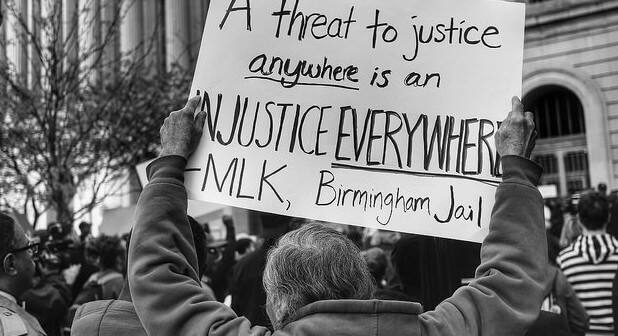The policeman blew smoke in Juan’s face and asked, “What are you doing in this neighborhood?”
Juan had taken my husband Jerome and I to the Metro Vineyard Church that was pastored by Mike Bickle. I was excited that my husband had met Pastor Mike because I heard about how God was moving at Metro Vineyard. Juan lived in an affluent predominantly-white subdivision.
“I live here, sir,” he replied. The cop peered at my husband sitting in the passenger seat. “What’s he doing here?” Juan replied, “He is visiting me from Columbia, officer.” The officer then explained to Juan that he was speeding. I was furious that the officer was disrespectful towards Juan by making him feel like he didn’t belong or was doing something wrong by driving into his own neighborhood.
My African-American husband, Jerome, laughed it off. I called the Grandview Police Department when we returned to Columbia, Missouri, to complain. Jerome said it wasn’t a big deal and dismissed the incident.
Jerome grew up in the Deep South, in Natchez, Mississippi, during the civil rights movement. The schools he attended were segregated until his high-school was desegregated. His mom worked for a Klansman. He said that he was chased by the Klan when he was 8-years-old.
Mysterious disappearances, lynchings and unsolved murders were typical in Mississippi. However, the oppressive injustice didn’t squelch Jerome’s love for people. When his school was desegregated, one of his best friends was white. His first boss, who co-signed a loan for his first car, was also white.
Jerome attended Mississippi State University in Starkville, and was one of the few African-American members in his church. He was the only African-American in a fraternity house. Jerome chose to love and believe God through the upheaval and injustice that he witnessed in Natchez.
After I finished the call to the Grandview Police Department, Jerome challenged me to forgive the officer. “Just forgive him,” Jerome said. “I don’t think anything of it and you shouldn’t either. It’s not worth getting bitter or offended.”
I forgave the officer and learned that even in the face of injustice we have to forgive and love our enemy. Offense and unforgiveness is a burden that we were not created to carry. Offense builds walls of bitterness around our hearts that can block God out as well.
“But I say to you, love your enemies, bless those who curse you, do good to those who hate you, and pray for those who spitefully use you and persecute you” (Matt. 5:44, MEV).
Jesus set the example for dealing with injustice. He forgave those who persecuted and crucified Him. He prayed for His enemies. The solution to the division in our nation lies in the hands of Christians who live out this Scripture. Let’s follow His example by loving our enemies and praying for those who persecute us.
Leilani Haywood is the online editor of SpiritLed Woman. Follow her on Twitter or Facebook.











































